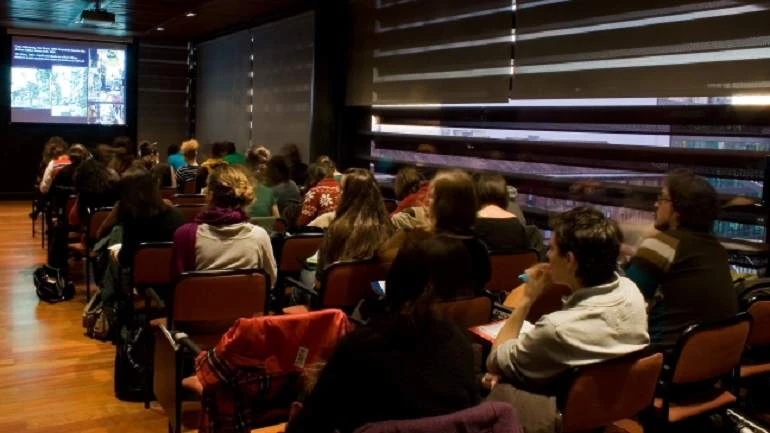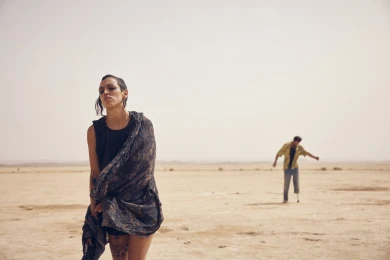Programa
-
October 15, 22, 29, and 30
New communities
Professor: Nina Möntmann
Guest: Yael Bartana
Public activity: October 29
This seminar explores contemporary participatory artistic practices and the possibilities for community in today's world. New categories such as the notion of network and others of growing importance in the critical debate, such as the relationship between morals, ethics and art, are debated. These issues give rise to a discussion of possible ways to conceive of a new institutionality.
The Israeli artist Yael Bartana participates in the workshop, in the public activity of October 29th, which examines two types of social practices, one based on co-operation (collective or participatory artistic production) and another that points to the speciousness of defining social groups by national, ethnic or religious criteria. -
February 2, 9, 16, 23, and March 2
Overflows of institutional critique
Professor: Marcelo Expósito
Guest: Grupo de Arte Callejero (GAC, Buenos Aires)
This seminar's starting point is the institutional critique tradition that has developed since the early 1970s. The limitations and potential of institutional critique are examined. It looks at art/political articulation as a process that tends towards overflow and decentralisation, identifying work methods and memory narratives as spaces of antagonism, through a discussion of the work of Marcelo Expósito.
The Grupo de Arte Callejero from Buenos Aires participates in the workshop. -
March 2 - 19:30 / Sabatini Building, Auditorium
Public lecture: Counter-design, cartographies, escraches… An experience between art and activism in Argentina
In dialogue with Marcelo Expósito, Fernanda Carrizo develops an overview of the trajectory of the Grupo de Arte Callejero (GAC). The work of this collective in the production of urban signals, cartographic representation, and "counter-design" exercises, conceived as a "collaborative practice" with social agents, was a key element in the generational renewal that Argentina's Human Rights movement experienced during the second half of the 1990s.
-
March 31, April 1, 7, 8, 14, 15, 28, 29
Reversible modernities
Professor: Alberto Corsín
Guest: Rane Willersley
Critical and cultural theory has entered the new millennium with unforeseen strength and depth: a way of seeing that looks at objects and matter in hopes of finding new possibilities for re-enchanting the world, new ontologies of relations and new politics of hope. Through encounters with the new cultural and social theory, this seminar intends to offer some analytical tools with which to go in and out of (turn around or revert) our modernity.






![Basel Abbas y Ruanne Abou-Rahme, At Those Terrifying Frontiers Where the Existence and Disappearance of People Fade Into Each Other [En esas fronteras aterradoras donde la existencia y la desaparición de personas se disuelven entre sí], 2019](https://recursos.museoreinasofia.es/styles/small_landscape/public/Colecci%C3%B3n/abbasabourahme.png.webp)